Amrita Giriraj from Chennai fell in love with the art of fossilising botanics like flowers and leaves, while she was working on a post-grad project. It was in Kanyakumari, where she led the foundation of her jewellery venture called ‘Alankaara’. Her brand is vastly different from any other jewellery brand that we’ve come across — it captures the essence of a place by preserving it’s flora in jewelry pieces.
Alankaara reflects her true self — humble, creative and deeply connected with nature. Since then, she has won the SISA (Start-up of The Year in Social Impact), travelled to Kenya and the Himalayas how flora can also bring you closer a place’s culture. She says, “Over the last 2 years, I’ve immersed myself in what I do and I realised I’m actually a story-teller. Each handcrafted jewellery is a story waiting to be heard and loved.”
Meet our amateur botanist and jewellery designer – Amrita
-
It’s great to have this chat with you today! We are beyond excited about your craft. First, please say hi to our audience.
Hello, my name is Amrita Giriraj, I’m an old soul on a mission to create products that mean something to people. Alankaara, my fossilised jewellery company is based out of Chennai. I love reading, writing, cycling and playing badminton. Other things that define me are my crazy love for varied coffee, vintage furniture, anything antique and an unfathomable love for cats.
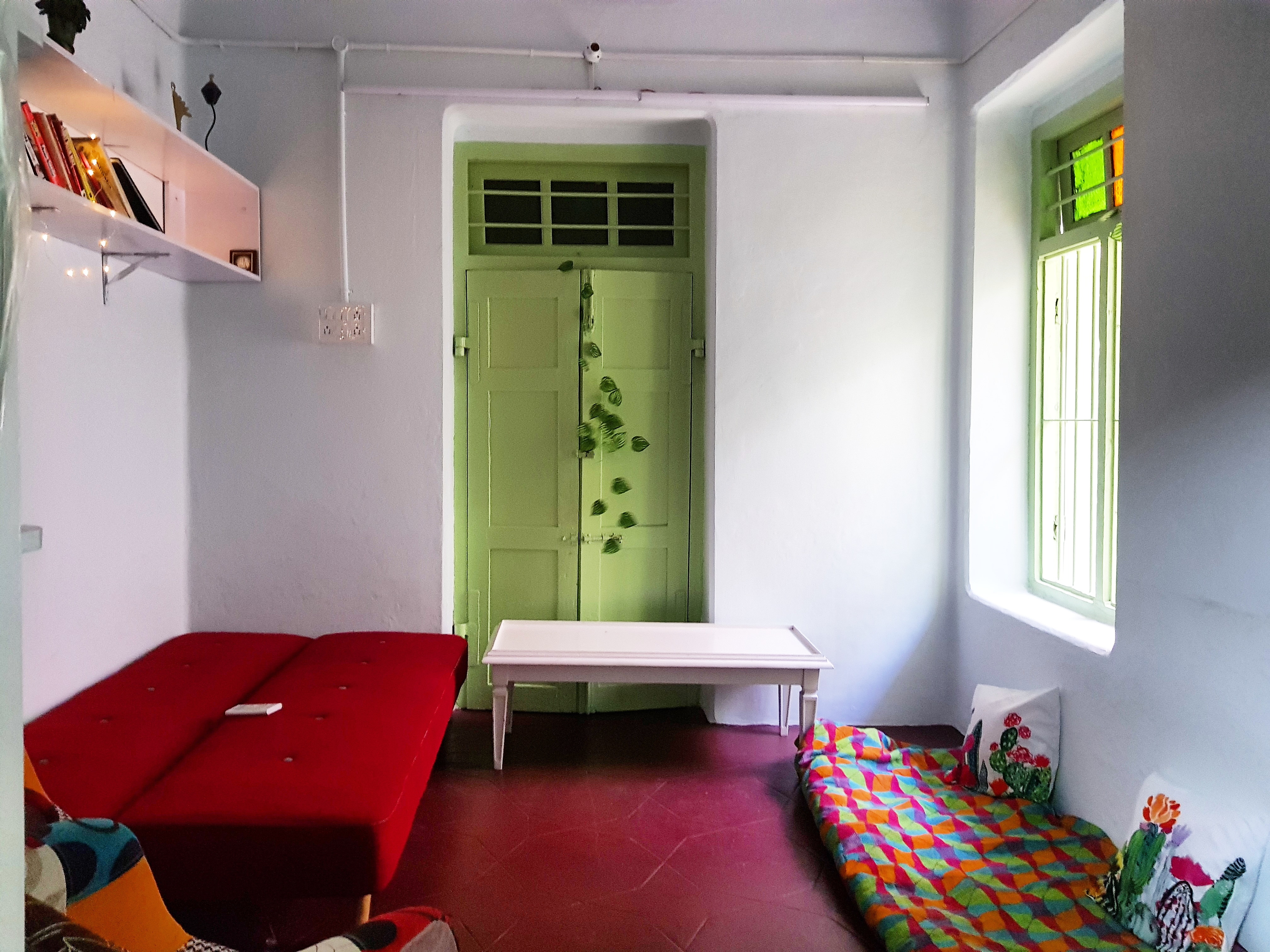
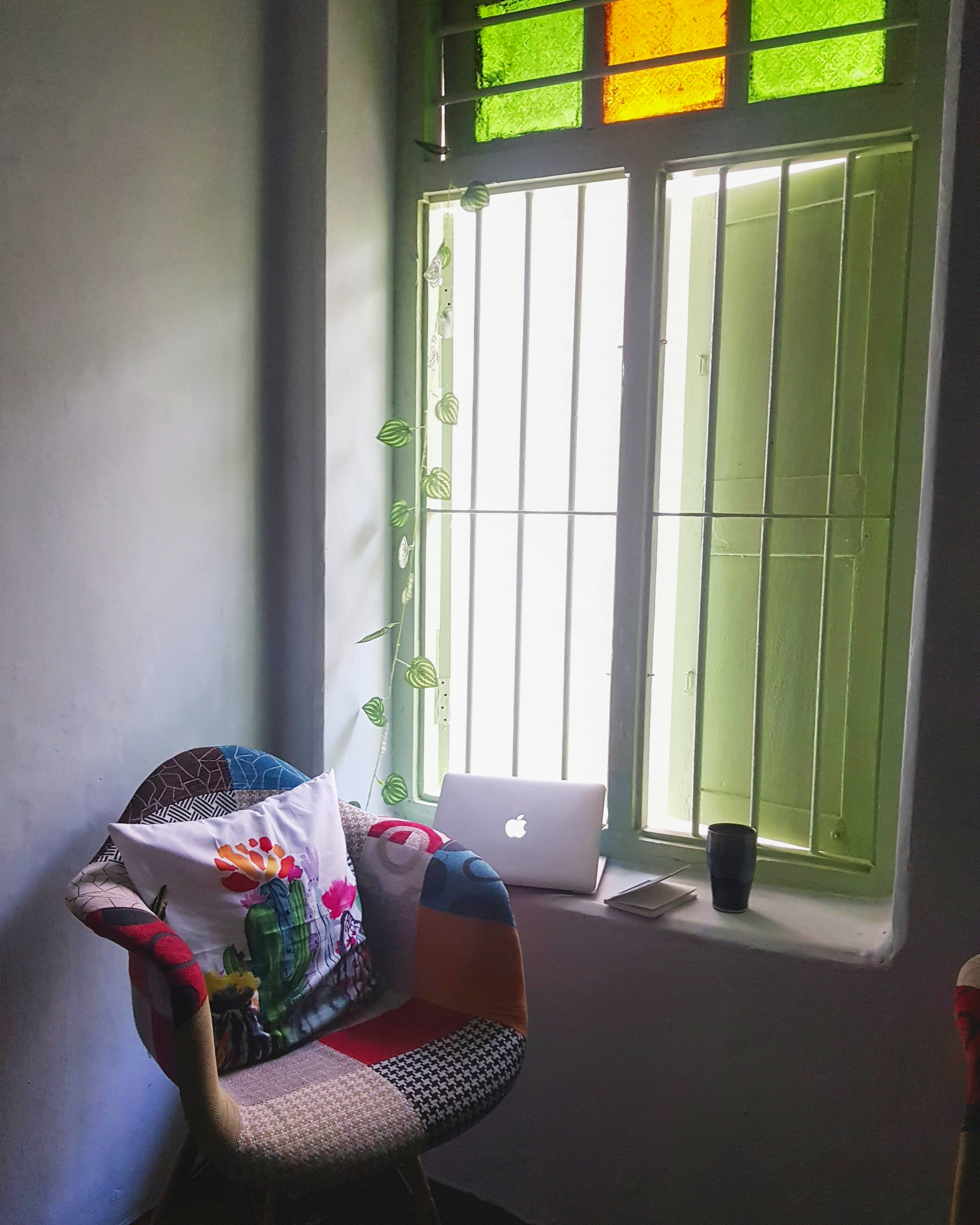
Alankaara office!
-
Tell us about Alankaara, how was it born?
Alankaara was born as my post-grad project in 2014. It was a dream, an idea, that shaped itself in the southernmost tip of India – Kanyakumari. The project required me to come up with a business model that would financially support seashell craftsmen in the area. Most of them never recovered from the Tsunami of 2004 which washed away their livelihoods. These craftsmen had to resort to importing and selling cheap plastic to tourists. This slowly allowed the artisan numbers to dwindle.
While researching, I stumbled upon a technique called fossilizing which was native to Ireland. Gillian Corcoran was one of the pioneers in this field. Inspired by her I then set to fossilizing small, medium and large seashells into jewellery and lifestyle objects. They were well received by the market. The process was easily understood by the artisans and it set them up for a brighter and more financially stable future.
After graduating with ‘The Best Project Award’, I had a dream of starting my own line! But I wanted to build it up on my own, so I started working as a merchandiser for a few years, working on Alankaara most nights out of my father’s garage. When the time was right, I decided to take the plunge and registered Alankaara Designs Private Limited and moved into a brick and mortar studio – finally accomplishing my dream.
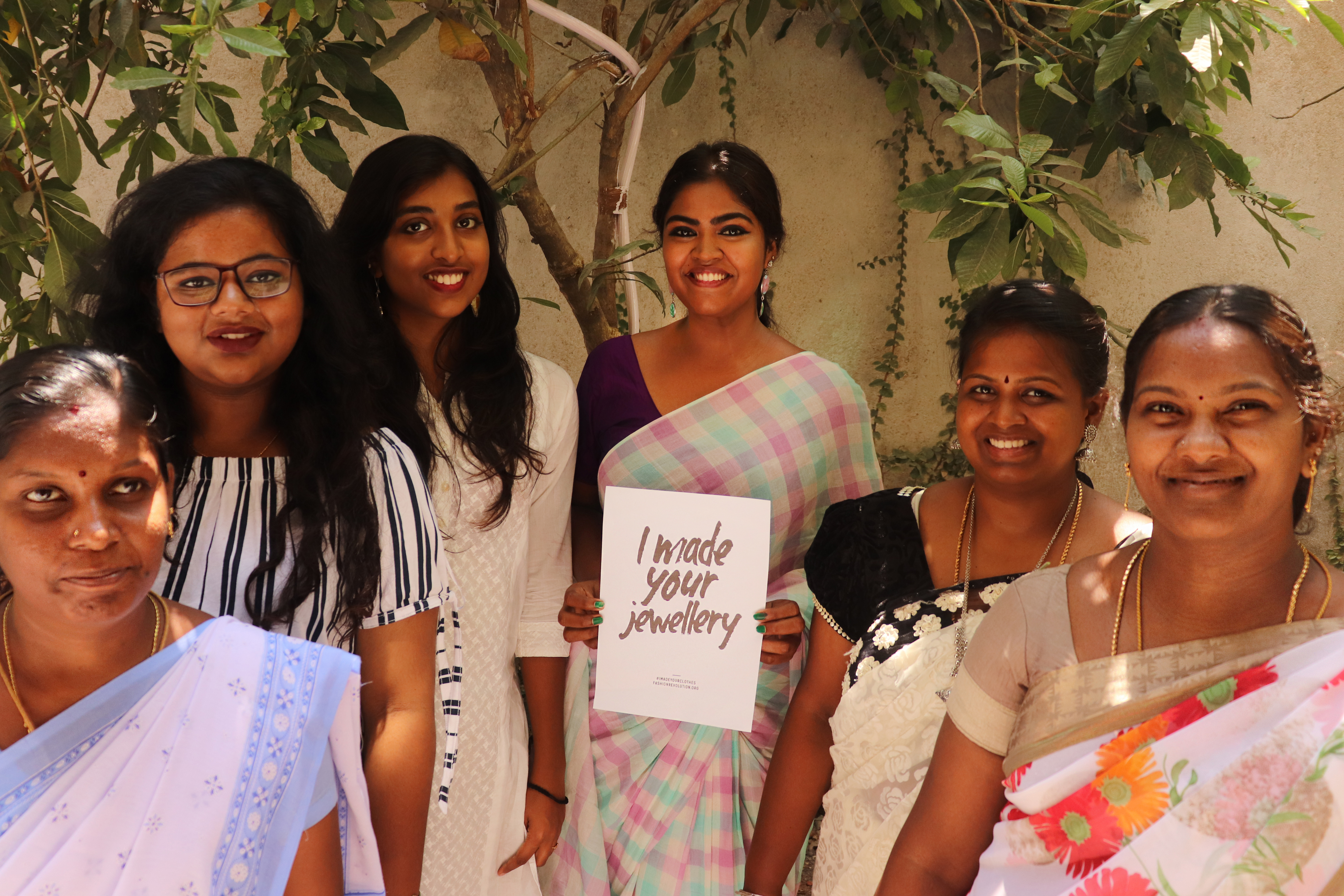
Behind the scene!
-
‘Alankaara’ is a very unique name! Tell us how you choose it?
Alankaara is an acronym of all the first letters of the women in my family. My name is the ‘A’, my supportive sister – Lavanya is the ‘LAN’, my great grandmother – Kamala is the ‘KA’, my mother – Akhila is the ‘A’, we then end with my grandmother – Ramachandran who is the ‘RA. They all make ‘A’ ‘LAN’ ‘KA’ ‘A’ ‘R’ ‘A’ – Alankaara. I wanted the wisdom of all these strong women guiding me through my journey.
Coincidentally it synced up to the word Alankaara in Tamil (அலங்காரம்) which means beauty and ornamentation.
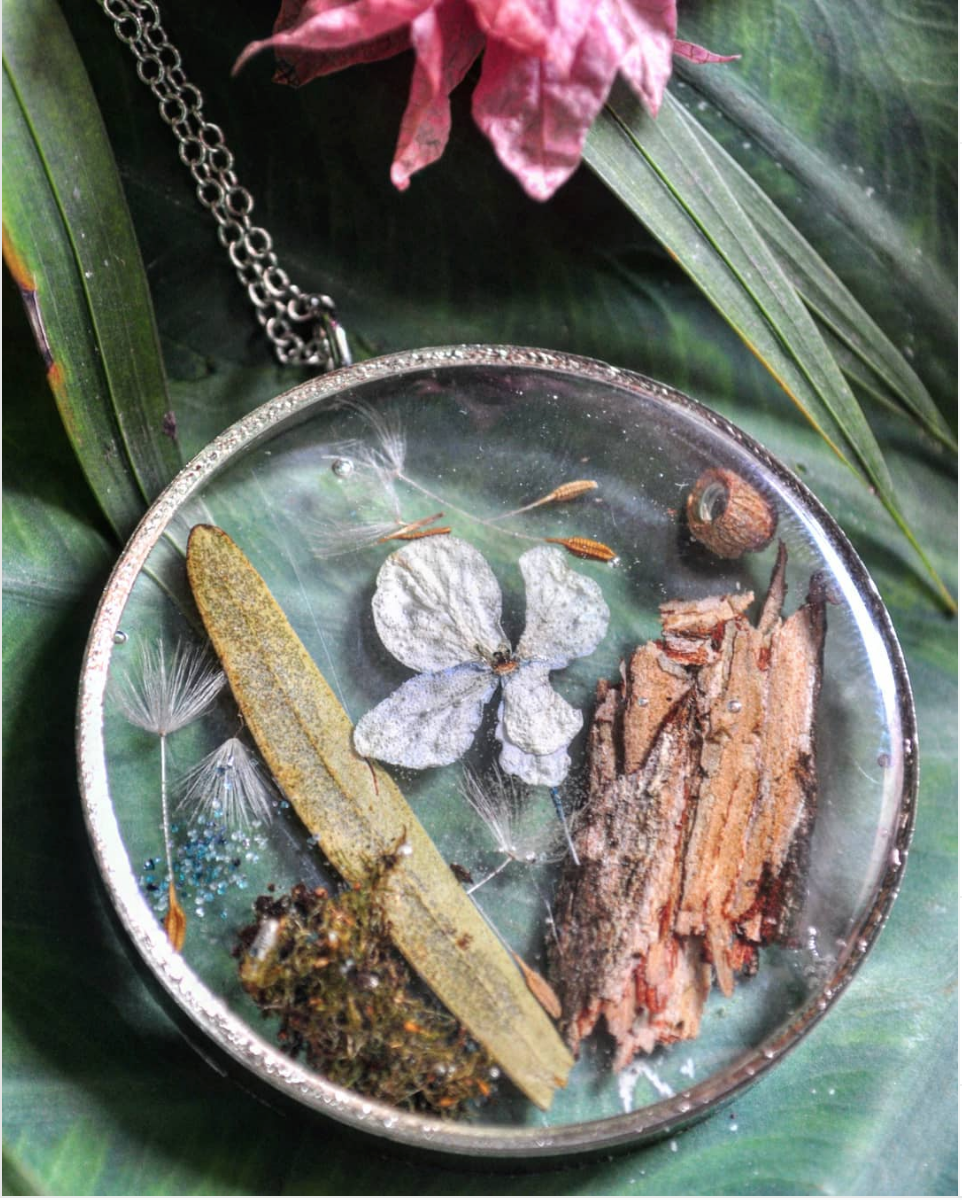
This medallion contains a tiny nut, eucalyptus leaf, pine tree bark, moss bed, a hydrangea flower and dandelion seeds -capturing the mountain ecosystem in a necklace.
-
Why did you choose this as your craft? What attracted you to it?
Fossilising is one of nature’s phenomenons. Have you ever seen honeybees stuck in amber and preserved? Or a leaf frozen in snow? Or ancient tools preserved under volcanic rocks? What we do is almost the same. We just bring it to you in a form you can enjoy and keep close to you – this idea means a lot to me.
While this concept is quite famous globally, in India, Alankaara was one of the first studios to bring botanicals from all around the world and present it with an Indian twist.

In reference to point 10 below. Optimism represented in a flower!
-
How has your upbringing influenced your work?
Growing up in the same family as some highly accomplished people such as Shiv Nadar and Dinathanthi, I always felt a little left out and intimidated. I was never good at logical, analytical and the mathematical aspects of everything all through my education and life after that. But watching them, listening to them speak, and seeing them gradually thrive taught me lessons that I have always held onto and incorporated as Alankaara’s core cultures.
- It’s okay to not be good at everything. Just find someone who shares your vision and is good at the things you aren’t good at.
- Treat people well, no matter how they are to you, you do you!
- Do not step on someone else’s food to move forward.
- Always trust your gut. It is never wrong.
- Work harder than your 100%.
- Care for the earth. Hitch your wagon to something larger than yourself.
- At your workspace, everyone – from the janitor to your CEO deserves the same respect.
- If you’re working for money, power or fame you’ll never be happy.
- Create a positive impact, no matter how small. It’ll cause a ripple in some way.
- Be optimistic.
-
Did you always want to be an entrepreneur?
What started off as pure passion took shape and became Alankaara. I never really thought I’d be an entrepreneur and I still don’t identify as one. Over the 2 years, I’ve immersed myself in what I do, I realised I’m actually a story-teller. Each handcrafted jewellery is a story waiting to be heard and loved.
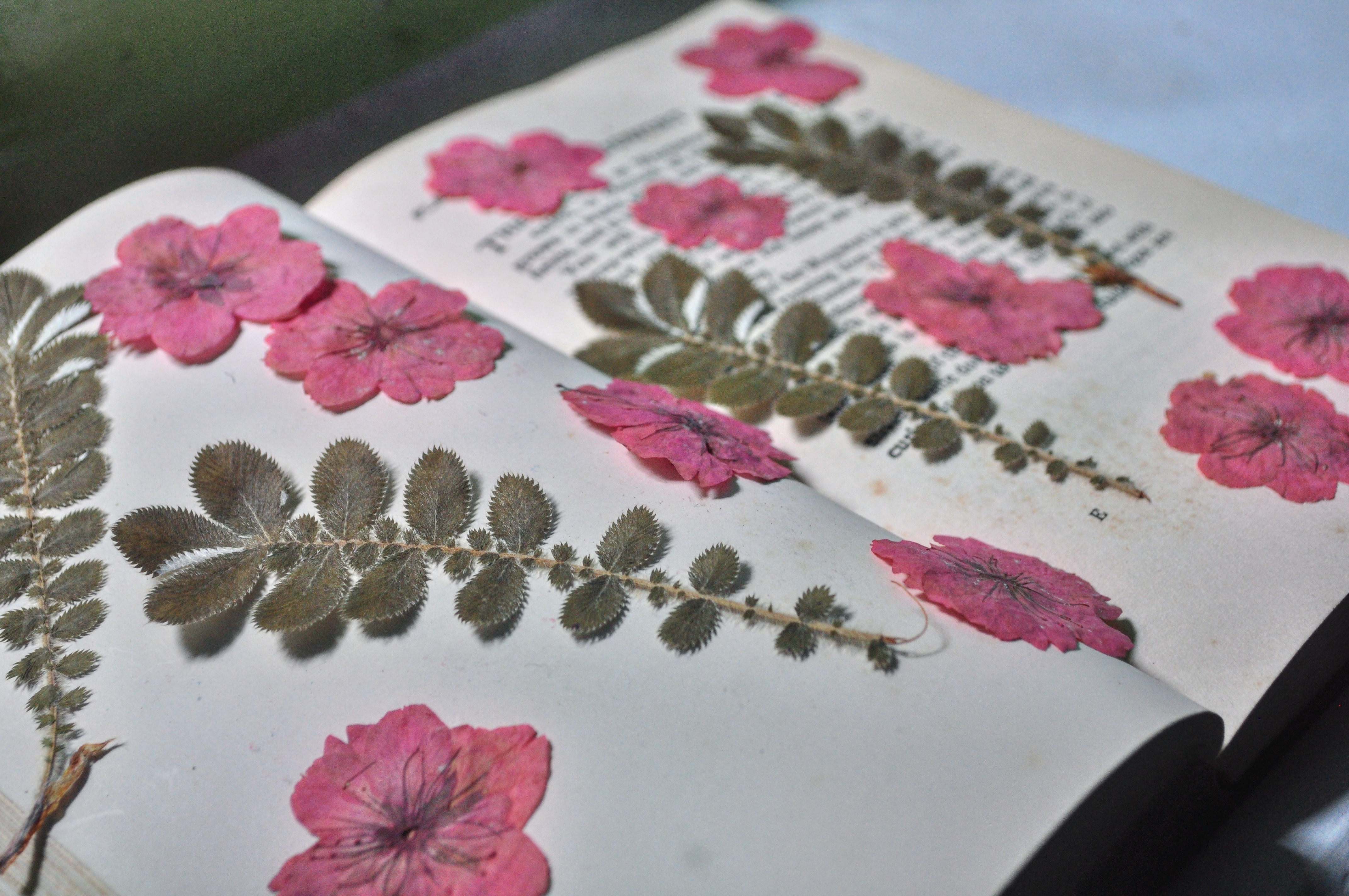
Process of pressing
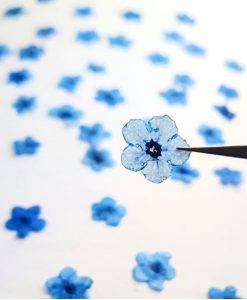
Tiny forget-me-nots from Munnar
-
What are some of the challenges you have faced?
Working with organic materials, especially with something as delicate as flowers, has been the biggest yet most soul-nourishing challenge ever. To retain a flower’s freshness is a challenge that took me more than 200 trial and errors and still is an ongoing process.
My biggest learning though has been to understand when to press a flower. How long to wait before it reaches its full bloom. I find dealing with this data as a major challenge. But I’m grateful for the people who have patiently taught me to deal with things that frazzle me.

With over 13 flowers collected from Kenya and Tanzania – We let the flowers speak for the continent – a riot of colours and textures: bold, robust and yet soft and honest just like the Natives.

-
Tell us about the research trips you have gone on to explore flora!
I’ve travelled extensively to understand flora from different ecosystems. For my first trip I went trekking to the tallest tea plantation in the world, Kolukkumalai, Munnar, Kerala. Where I discovered flowers I’ve never seen in my city life before. Exotic blues, bright reds and very delicate shades of purple.
Another cherished memory was my trek to the Himalayas – I reached 11700ft. It changed almost everything for me – it an incredibly personal journey. In terms of flora, I was constantly amazed at the biodiversity in the Himalayas, it is just as sturdy as the pebbles there. The poppy flowers, asters and even the mist flowers are tough and fleshy.
My most recent trip was to Kenya where the colours of each flower was as vibrant as the people and the continent. Bold, robust and strong is how I saw their flora.
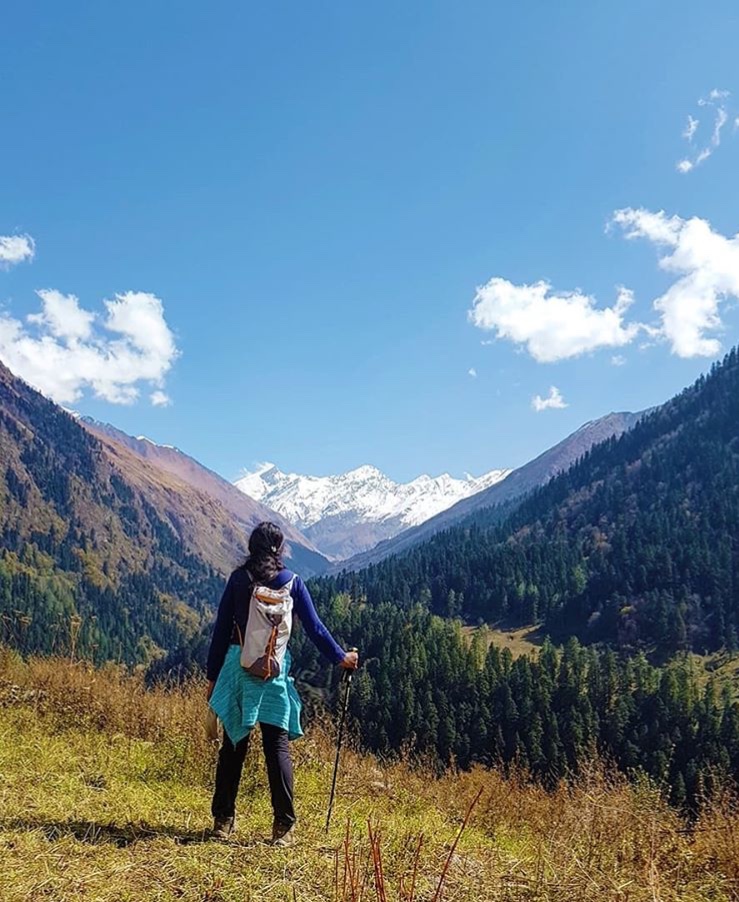
The Himalayas
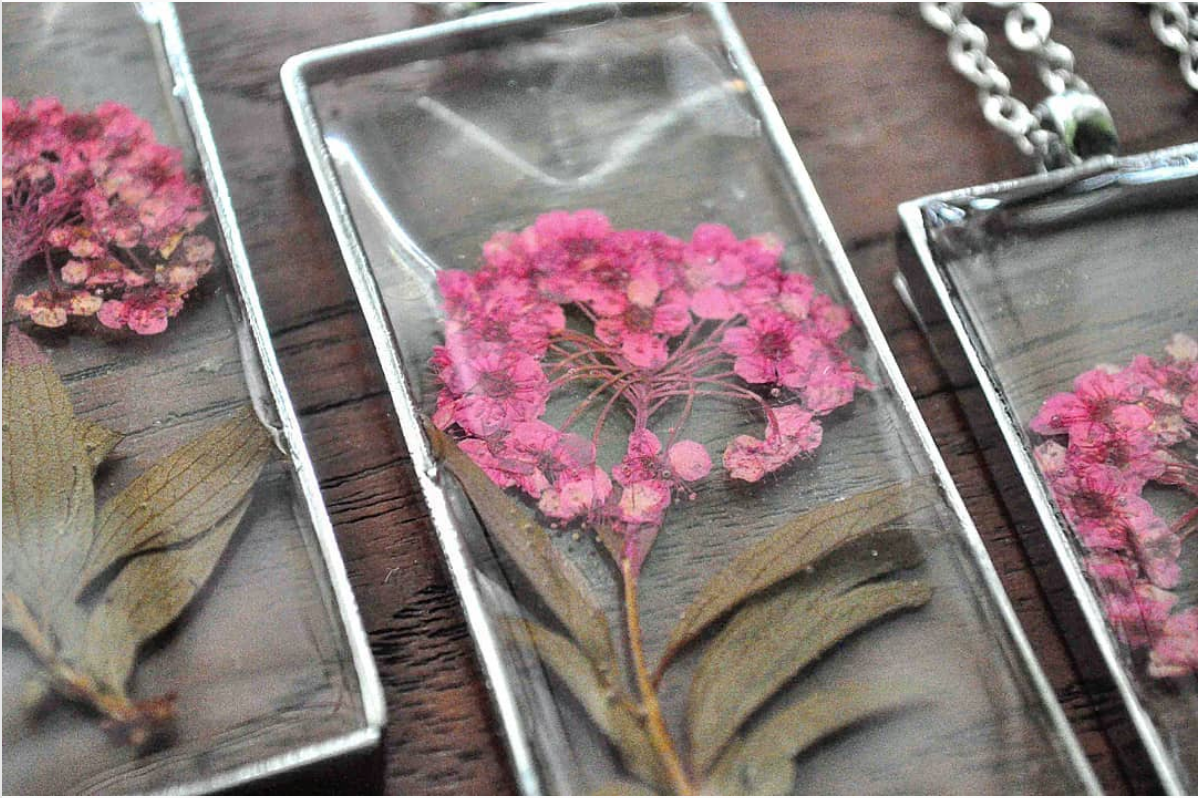
The Himalayan Spiraea. I found these pink blooms near Osla Village. The Spirea Bella invites you to let your guard down, to pull down protection around your heart and live with compassionate equanimity.
-
Are clients often curious about the meanings behind the flowers? And do you have any favourites?
Yes. Almost everyone asks for the symbolism of flowers and having worked with them for so long I connect on a spiritual level with each of the flora I use. I have a large stack of books with everything and anything I could know about them. I honestly do not have a favourite because each flower gives me a different emotion to hold on to, they’re all equally beautiful to me.
-
How many types of flora and materials do you work with and tell us briefly about the process.
We have a flower directory with almost 47 flowers now! Most of them are seasonal. For the framing, we use brass, copper and silver for the most part and for fossilizing the botanicals we use pine resin.
The process works in 3 steps but requires prep work months in advance. First is the pressing of flowers, second is preparing the moulds to cast in, and finally preserving the botanicals in resin. It’s all very basic but the time taken to figure out which botanicals work and what kind of hardware suits them, takes the longest time.
Also, Alankaara’s packaging is 100% biodegradable, we use no plastic. We believe in an old school model where we write notes for every order and seal it with wax stamps. We top it off with a dry flower.
To explore more of this exciting passion project, visit their Instagram page.
- “While Studying in France, I Discovered Farm to Table Concept, and That Inspired My Fresh Food Venture” – Chat With Sriram Nair, Owner of Terra Cafe, Ahmedabad - September 14, 2020
- A Chat With Ashwin Chikerur – an Urban Sketcher and a Designer from Pune - October 31, 2019
- Dina Weber from Germany Chats About The Art and Soul About Bread-making and Her Bakery ‘SAPA Sourdough & Pastry’ in Mysuru - October 29, 2019


